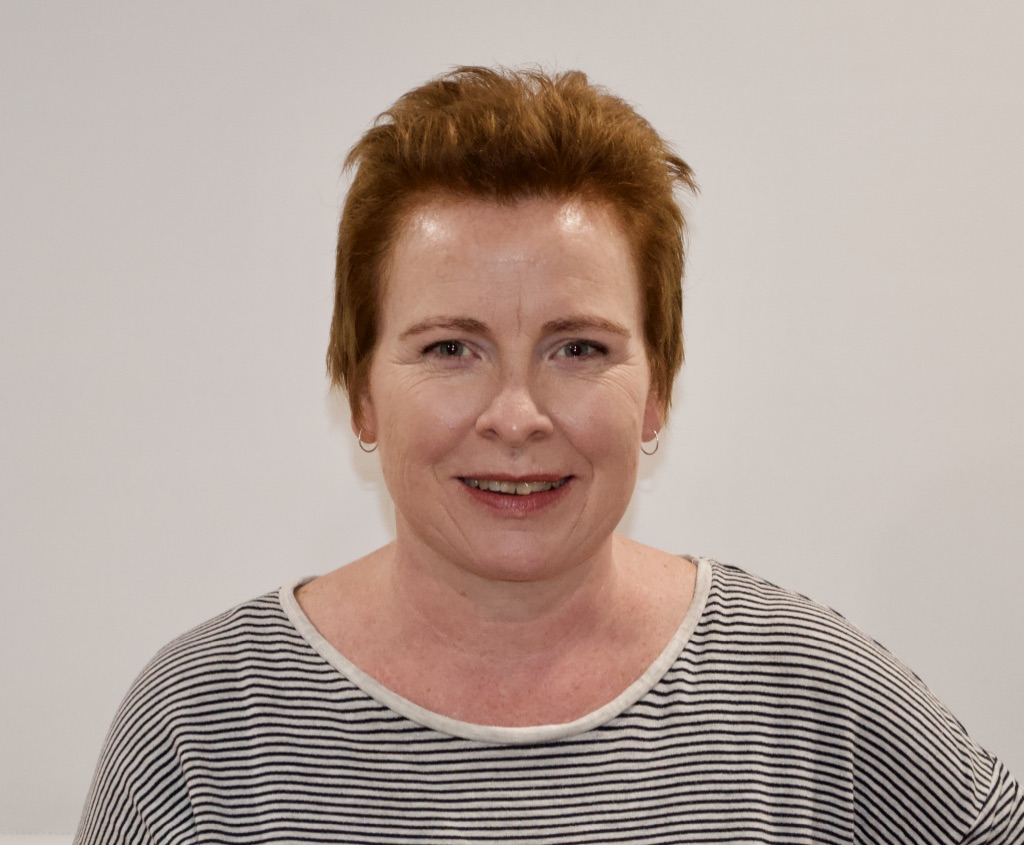Disability Practice in the Spotlight
Michelle Jepsen

A common theme among disability practitioners is the career change from teaching to student service roles with responsibilities in directly supporting students with disability. Michelle Jepsen certainly followed this trend. Moving from teaching to the role of Disability Liaison Officer (DLO) at The Gordon (the largest stand-alone TAFE in the country, and located in Geelong - Victoria’s second largest city).
Michelle taught for over ten years at The Gordon, mostly in Business Administration, but also in a range of Certificate I and II pathway courses in women’s access, general education and community outreach programs. Her variety of teaching experiences exposed her to a diverse range of students, including those who identified with a disability. The skills she gained in her teaching roles, where she assisted students to build self-esteem and develop transferable skills, are invaluable for her current role.
Michelle has worked in the role of DLO at The Gordon three times. Initially, as a casual in 2007, then again in 2010 on a short term contract. In 2016, she became full-time in the DLO role and has never looked back. She finds the role of DLO rewarding because she can support students to build their individual strengths while they study. Michelle explains:
“The role of DLO is to have an understanding of individual student learning styles and communicate that with their teachers, who can then make adjustments to cater to each students’ needs. It is these adjustments that I find fascinating about the role because every student is different and has a completely different set of strengths and needs. I am motivated in my role by the possibility of changing the life of a student by supporting them through their course, and ultimately, setting up the right conditions for them to succeed.”
Another large part of the role of DLO is to raise awareness among staff about their obligations under the Education Standards 2005. Michelle developed an online training module about disability law and inclusive practices that is now a compulsory unit for all staff to complete at The Gordon. The unit includes information about the Disability Discrimination Act 1992, definitions of disability, inclusive teaching practices, and reasonable adjustment examples. Michelle discussed how the unit has proven to be an excellent way to capture all staff and ensure they understand how to cater to students with a disability.
Throughout her career, Michelle has noticed an emerging pattern of the type of students who register for Disability Support. There has been a steady increase of students with complex needs and rising prevalence of students who register requiring assistance with mental health issues, such as anxiety. This noticeable trend has led to the adoption of strategies to alleviate pressures on students struggling with anxiety. The Gordon is currently working towards a program run by mental health professionals to target anxiety by running workshops for students.
The Gordon also hosts a six-week program called Passport to Employment, which guides a cohort of around 20 students with disabilities from local schools through a program learning job search skills and developing self-esteem. The program is run by the local NDCO and the LLEN and has been hosted by The Gordon four times. Michelle has valued her involvement in the Passport to Employment program as it provides an opportunity to witness the development of the young people involved and also to work collaboratively with agencies and schools in the region.
When asked what advice Michelle could offer other disability practitioners, she said, “The advice I would give to experienced practitioners is to never forget your ‘why’. Keep in touch with why you were attracted to the role in the beginning. As DLO you can make a huge difference to a student’s life by helping them on that pathway from school to further education”
“The advice I would give to new practitioners is to get the students to tell you what their needs are – they are the expert on themselves. No two students are the same,” continued Michelle.
Michelle also discussed the need for increased funding in the TAFE sector to address the support needs of students, particularly extra funding deaf students and the nation-wide shortage of Auslan interpreters.
In terms of the role of DLOs, Michelle laments the lack of pathway opportunities in TAFE for students to enter into appropriate education levels; often by the time a student is enrolled and requesting support, they are struggling to meet the demands of their particular course. Students select courses without a full understanding of the inherent requirements of the course and whether they can fulfil the requirements. Michelle suggested that many students would be better positioned to achieve by starting with lower level certificates and working on an educational pathway where they develop the appropriate skills in manageable steps.
Outside her role, Michelle is involved in professional development opportunities, like the Pathways Conference. In 2018, Michelle attended Pathways and reflects upon the highlights, “I found the presentations that drew on personal experience really inspiring for my role. For example Nas Campanella, who gave us insight into her experiences as a student and how she developed her career, as did Tom Lobbe, who was a horticulture student. It was also a brilliant opportunity to network and exchange ideas with like-minded people.” She hopes to again attend the conference in 2020.
How does Michelle sustain the energy to continue achieving high outcomes for student equity? She reveals her secrets: growing vegetables and keeping chooks. She is also a keen musician, playing bass and jamming with friends.
A gardener, a musician and DLO who has made a considerable difference to the achievement of equity practices in her workplace. It’s fair to say, we’ll see this powerhouse making major changes across this sector for a long time to come.
Written by: Jane Britt

